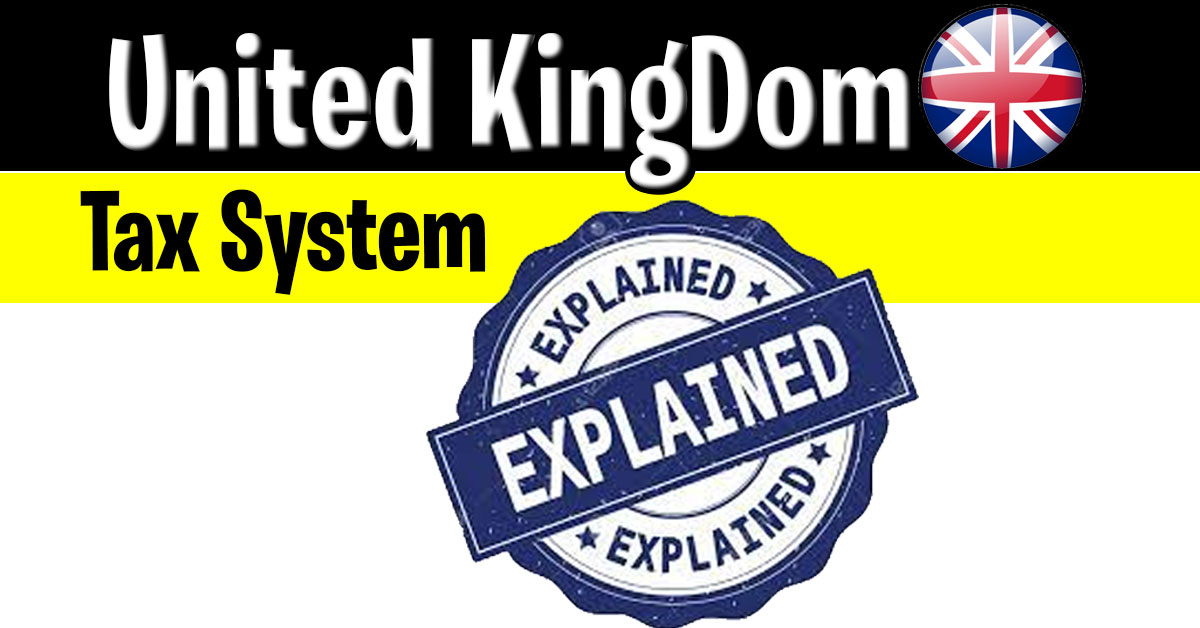UK Tax System for Foreigners
The tax system or framework in the United Kingdom isn’t anything but difficult to disclose to outsiders and foreigners. Ostensibly UK has the longest assessment code on the planet since 2009. The yearly changes to assessment and obligation frame a law called the Finance Act, which may change the expense rates and standards set out in the primary duty acts. Tax assessment in the UK normally, includes installments to the focal government office called Her Majesty’s Revenue and Customs (HMRC) and neighborhood boards. Neighborhood committees gather an expense called business rates from organizations and chamber assess from family units.
History of Taxes in the UK
The biggest wellspring of income for the UK government is close to home pay imposes. The second biggest source are national protection commitments, the third esteem included duty (VAT) and the fourth biggest is enterprise assess. Pay charge was first presented amid the Napoleonic wars and re-presented for all time in 1842. Organizations were a piece of the salary assess framework until 1965, when company charge was presented. Individual wage charge fundamental rate was diminished from 33% to 20% amid the 1979-2007 governments. This was prominently done by Margaret Thatcher, who favored roundabout tax collection and decreased government spending. The forerunner of the VAT from 1940 to 1973 was the buy charge. The rate of procurement assess toward the beginning of 1973 was 25%. The VAT standard rate has been expanded from 10% after its presentation in 1973, when the UK joined European Economic Community, to 20% viable from January 2011.
Tax Year, Monetary Year and Individual Tax Year
These all are the distinctive terms an outsider experiences when beginning a business in the UK. The assessment year is diverse for organizations and people. The budgetary year in the UK keeps running from 1 April to 31 March. Government planning and expense directions take after the monetary year. The bookkeeping time of an organization can be the money related year or the logbook year or any given year term. A bookkeeping period in the UK is regularly a year time span for which company imposes is ascertained. The individual duty year keeps running from 6 April to 5 April. The convention backpedals to medieval circumstances and it was initially in light of the congregation year.
Key Standards of the UK Value Added Tax
VAT in the UK is directed by the Value Added Tax Act 1994 and different acts, for example, the Finance Act setting the yearly VAT rates. There are three rates of VAT: standard rate (20%), decreased rate (5%) and zero rates (0%). Moreover a few products and ventures are absolved from VAT or outside the VAT framework. The necessary enlistment limit for organizations is £83,000 of non-VAT absolved wage per budgetary year. Enrollment edge for separate offering into the UK is £70,000. Organizations might need to enlist intentionally keeping in mind the end goal to recover VAT on buys made before the VAT enrollment limit is passed. There is a period restrict for recovering VAT that was paid before enrollment. As far as possible is 4 years for merchandise and a half year for administrations acquired before the date of the VAT enlistment. VAT returns are presented like clockwork; those periods are called “VAT bookkeeping periods”. These quarterly VAT returns should just be submitted on the web. Organizations can pick their VAT bookkeeping period while enlisting for VAT with HM Revenue and Customs. It is conceivable to document VAT returns on the web in spite of the fact that it is more secure to give qualified bookkeepers a chance to do it.
Key Standards of the UK Corporation Tax
Enterprise or corporate tax is controlled by the Corporation Tax Act 2010 and different acts. Restricted organizations and remote organizations with a UK branch or office must pay company assess on assessable benefits. Assessable benefits incorporate exchanging benefits, ventures and chargeable additions from offering resources. A UK restricted organization pays company impose on every one of its benefits from the UK and abroad. An outside organization with an office or branch in the UK pays partnership imposes on benefits from its UK exercises.
Since first April 2015 the partnership charge rate is 20%.A constrained organization must record yearly records with Companies House 9 months after the organization’s money related year closes at the most recent. A constrained organization with benefits up to £1.5 million regularly should pay enterprise assess 9 months and 1 day after the organization’s bookkeeping time frame closures and record an organization government form a year after the organization’s budgetary year closes. Four equivalent portions are typically required for benefits surpassing £1.5 million.
Employment Taxes in the UK
Bosses need to deduct individual pay duty and national protection commitments from work through a framework called PAYE (Pay As You Earn). Different findings organizations may need to make incorporate understudy advance reimbursements or annuity commitments. Organizations need to enlist as a business with HM Revenue and Customs to get a login for PAYE Online or approve an operator, for example, a bookkeeper. Managers are legitimately in charge of finishing all PAYE undertakings regardless of the possibility that an operator is getting paid to do them. A non-inhabitant organization can’t set up a standard finance conspire until the point when it has business premises in the UK.
Note that any business must have the Employers’ Liability (EL) protection when they turn into a business. The protection arrangement must cover the business for at any rate £5 million and originate from an approved safety net provider. EL protection will enable the business to pay if a representative is harmed or turns out to be sick as a result of the work.
Key standards of the UK Income Tax
Individual wage impose is controlled by the Income Tax Act 2007 and different acts. The rate of wage charge a man must pay relies upon the amount of their earned salary is over their own remittance in the assessment year. The present expense year keeps running from 6 April 2016 to 5 April 2017. A great many people’s close to home stipend is £11,000 per assess year. This is tax exempt recompense for all UK inhabitants. The individual recompense goes around £1 for each £2 that the earned wage surpasses £100,000. This implies the individual recompense is zero if the earned salary is £120,000 or above.
For earned wage of £0 to £32,000 over the individual remittance, which implies £11,000 to £43,000 of gross earned salary, the fundamental pay assess rate is 20%. The higher rate of 40% applies when the earned wage is £32,001 to £150,000 over the individual remittance. There is an extra 45% rate for net salary surpassing £150,000. There are diverse expense rates for profit and resrve funds salary.
Business Tax Rates
Business rates depend on the Local Government Finance Act 2012 and different acts. Business rates, which are likewise called non-residential rates, are a sort of a property charge presented in England and Wales in 1990. It is a duty on the control of non-local property and it has expanded by 7% since 2010. Inhabitants, for example, workplaces and shops as a rule pay this specifically to the neighborhood board on the off chance that it isn’t a piece of the lease paid to the proprietor.
Properties are in a national rating list by ratable esteem (likewise RV). This is a valuation of their yearly rental incentive on a settled valuation date in light of suspicions. It isn’t the present market cost or the cost concurred in the occupancy understanding. The following revaluation date was put off to 2017 by the legislature and right now the valuation information depends on the 2010 presumptions.
For the 2016/17 monetary year the national independent venture rate help (SBRR) multiplier was 48.4% (0.484) and the standard rate multiplier 49.7% (0.497). Neighborhood boards can set a unique impose (additionally called business rate supplement or BRS) over the national rates. In Greater London region the BRS is 2% (0.020).
You can even now qualify as a private company if your property has a rate able estimation of underneath £18,000 or £25,500 for more prominent London. For this situation your business rates will be computed utilizing the private company multiplier rather than the standard multiplier. The standard multiplier for independent company in England for 2016-17 is 49.7% (0.497) Family units pay a comparative duty called committee charge. Anyone more than 18 years of age and not a full-time understudy, leasing or owning a home in the UK, must pay committee assess. Board assess is an expense on local property gathered by your neighborhood chamber. The cash is utilized to pay for nearby administrations, for example, schools, junk accumulations, street and road lighting.







